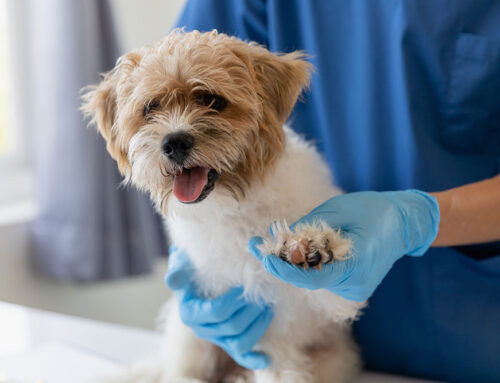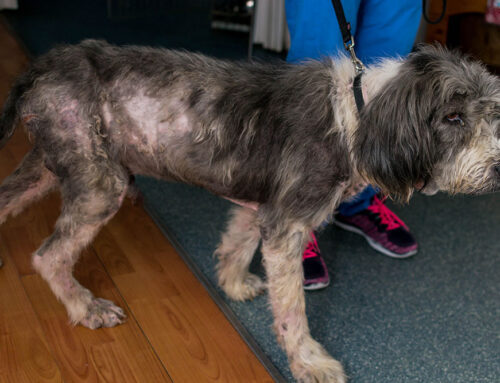Vaccinations play a vital role in your pet’s long-term health, whether you’re caring for a new puppy, an aging indoor cat, or a dog who’s been part of the family for years. Staying up to date on vaccines doesn’t just protect your pet from serious illness- it also helps reduce the risk of disease transmission in your community.
At Bayview Animal Hospital, we know pet owners are bombarded with conflicting advice. That’s why we focus on education and your pet’s specific needs. Here’s what you need to know about protecting your pet through personalized vaccination care.
Vaccines: How They Protect Your Pet
Vaccines are a cornerstone of preventive veterinary care. They introduce a harmless version of a disease-causing agent to your pet’s immune system, training it to recognize and defend against real infections in the future.
Why Vaccinations Matter
- Protect against life-threatening diseases like parvovirus, distemper, and rabies
- Prevent zoonotic diseases (illnesses that can spread to humans), especially rabies
- Support public health by reducing disease outbreaks in your pet community
- Meet legal and boarding requirements, particularly for core vaccines like rabies
→ Vaccinations for Pet Owners – AVMA
Core vs. Non-Core Vaccines: What’s Right for Your Pet
We categorize vaccines as either core (recommended for all pets) or non-core (recommended based on risk factors).
Core Vaccines
These protect against severe, highly contagious diseases with serious public health concerns.
Dogs
- Rabies
- Distemper
- Adenovirus
- Parvovirus (DAP/DAPP)
Cats
- Rabies
- Feline viral rhinotracheitis
- Calicivirus
- Panleukopenia (FVRCP)
→ Can My Pet Get Rabies? – AAHA
Non-Core Vaccines
We tailor these based on lifestyle, environment, and travel habits.
Dogs may need
- Bordetella (kennel cough) – for dogs who board, attend daycare, or socialize
→ Kennel Cough in Dogs – AKC
- Leptospirosis – for pets in areas with standing water (common in Florida)
→ Guide to Leptospirosis – AAHA
- Lyme disease, canine influenza, or rattlesnake vaccine (based on geography)
Cats may need
- Feline Leukemia Virus (FeLV) – especially for outdoor cats or multi-cat homes
→ Feline Leukemia Virus – Cornell
Vaccine Schedules by Life Stage
Puppies & Kittens
Initial protection from maternal antibodies wears off within weeks, leaving young pets vulnerable. We recommend beginning vaccines at 6–8 weeks of age and continuing every 3–4 weeks until at least 16 weeks.
These series help build strong, lasting immunity to core threats like parvovirus, panleukopenia, and upper respiratory viruses.
Adult Pets
Booster shots help maintain immunity throughout adulthood. The schedule varies depending on the vaccine—some require yearly doses, others every three years. We’ll assess your pet’s lifestyle to guide which non-core vaccines remain necessary.
Senior or Medically Compromised Pets
Older pets may not need as many boosters, and we sometimes recommend titer testing to measure antibody levels. The goal is to maintain protection while avoiding unnecessary vaccinations.
→ Your Dog’s Life Stages – AAHA
→ Feline Vaccine Considerations – Cornell
What to Expect During a Vaccination Visit
When you visit us for vaccines, here’s what you can expect:
- Comprehensive physical exam – to ensure your pet is healthy enough to receive vaccines
- Lifestyle-based recommendations – we’ll guide you through core vs. non-core needs
- Safe and efficient vaccination – performed by experienced veterinary professionals
- Thorough documentation – we track vaccine history and send reminders for boosters
→ Why Are Regular Veterinary Visits Important? – AAHA

Common Questions & Concerns
What if my pet has a reaction?
Most vaccine reactions are mild—think low energy or mild tenderness at the injection site. Serious reactions are rare but can include vomiting, swelling, or difficulty breathing. If you’re concerned, call us right away.
Do indoor pets need vaccines?
Yes. Rabies is legally required in most states regardless of lifestyle. Indoor pets can also be exposed through screen doors, other pets in the household, visitors’ shoes and clothing, or unexpected wildlife encounters.
We’re Here to Help You Stay on Track
At Bayview Animal Hospital, we’re here to simplify pet healthcare—not complicate it. Vaccinations are a simple, powerful way to prevent disease and protect the pets you love most.
Whether your pet needs their first round of shots or a quick booster update, our team is ready to help.
→ Schedule your pet’s vaccination appointment
→ Contact us with questions
By staying informed and consistent, you’re giving your pet the best defense against preventable illness—and we’re proud to be part of that care.







Leave A Comment